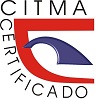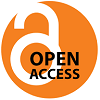Estrategia Didáctica para el análisis de textos multimodales en los estudiantes de la carrera Licenciatura en Educación. Español-Literatura
Didactic Strategy for the analysis of multimodal texts in the students of the Bachelor of Education career. Spanish-Literature
Palabras clave:
estrategia didáctica, textos multimodales, competencia semióticaResumen
Si se tiene en cuenta que el desarrollo de las tecnologías de la informática y las comunicaciones han favorecido la convergencia de diversos medios y modos semióticos, en los diferentes ámbitos de la sociedad, entonces se requiere formar y desarrollar competencias en el proceso de enseñanza-aprendizaje de la lengua y la literatura, que permitan a los estudiantes analizar e interpretar la naturaleza simbólica y comunicativa de los fenómenos humanos. A partir de insuficiencias en la integración de saberes de la profesión, que limitan la comunicación eficiente en los contextos de actuación de los estudiantes de la carrera Licenciatura en Educación. Español-Literatura, en la Universidad de Granma; se elaboró una estrategia didáctica, sustentada en un modelo didáctico de desarrollo de la competencia semiótica, para la comprensión y análisis de textos multimodales que favorezca la comunicación eficiente a través del uso de diversos sistemas semióticos en los estudiantes de la referida carrera. En el proceso investigativo se asumió como enfoque metodológico general, el dialéctico-materialista, el cual propició el análisis multilateral de los fenómenos sociales, en general y de los educativos, en particular. Se emplearon además, métodos de investigación teóricos, empíricos y estadísticos. La aplicación de la estrategia didáctica demostró su viabilidad, pertinencia y efectividad al favorecer la comunicación eficiente en los contextos de actuación de los estudiantes de la carrera Licenciatura en Educación. Español-Literatura.
Abstract:
If we take into account that the development of information and communication technologies has favored the convergence of various media and semiotic modes in the different areas of society, then it is necessary to form and develop competencies in the teaching-learning process of language and literature, which allow students to analyze and interpret the symbolic and communicative nature of human phenomena. Based on the inadequacies in the integration of knowledge of the profession, which limit efficient communication in the contexts of action of the students of the Bachelor of Education degree in Spanish-Literature, at the University of Granma; a didactic strategy was developed, based on a didactic model for the development of semiotic competence, for the understanding and analysis of multimodal texts that favors efficient communication through the use of various semiotic systems in the students of the aforementioned degree. In the research process, the dialectical-materialist approach was adopted as a general methodological approach, which fostered the multilateral analysis of social phenomena in general and educational phenomena in particular. Theoretical, empirical and statistical research methods were also used. The application of the teaching strategy demonstrated its viability, relevance and effectiveness by promoting efficient communication in the contexts of action of the students of the Bachelor of Education. Spanish-Literature course.
Keywords: teaching strategy, multimodal texts, semiotic competence.
Descargas
Citas
Baque-Reyes, G. R., & Portilla-Faican, G. I. (2021). El aprendizaje significativo como estrategia didáctica para la enseñanza – aprendizaje. Polo del Conocimiento, 6(5), Article 5. https://doi.org/10.23857/pc.v6i5.2632
Cajape Suárez, C. A. (2022). Estrategia didáctica para la enseñanza de ciencias naturales. [masterThesis, Universidad Politécnica Salesiana]. http://dspace.ups.edu.ec/handle/123456789/22155
Castellanos Simons, D., Castellanos Simons, B., Llivina Lavinge, M., Silverio Gómez, M., Reinoso Cápiro, C., & García Sánchez, C. (2002). Aprender y enseñar en la escuela. La Habana: Editorial Pueblo y Educación. https://scholar.google.com/citations?view_op=view_citation&hl=es&user=ZYQy_XwAAAAJ&citation_for_view
De Armas Ramírez, N., Marimón Carrazana, J. A., Guelmes Valdés, E. L., Rodríguez-Tomas, M., Rodríguez Palacios, A., & Lorences González, J. (2005). Los resultados científicos como aportes de la investigación educativa. Centro de Ciencias e Investigaciones Pedagógicas. Universidad Pedagógica “Félix Varela”. La Habana. Cuba, pp. 8-21. https://scholar.google.com/scholar?cluster=3890239949300943864&hl
Fernández González, A. M., Castellanos Simons, B. y Llivina Lavinge, M. (2003). De las capacidades a las competencias: una reflexión teórica desde la psicología. Revista Varona, Número 36-37 (Enero - Diciembre), Cuba, pp. 22-25.
Kress, Gunther. (2010). Multimodality: A Social Semiotic Approach to Contemporary Communication. London & New York: Routledge. 213 pp. ISBN 978-0-415-32061-0. https://doi:10.1016/j.pragma.2011.06.013
Lenin Ilich, V. (1986). Sobre el problema de la dialéctica. En Obras Completas. Tomo 29. Cuadernos filosóficos (pp. 321–328). Editorial Progreso. https://archive.org/details/obras-completas-lenin-tomo29/
Moreno-Guerrero, A., Jurado de los Santos, P., Pertegal Felices, M., & Soler Costa, R. (2020). Bibliometric Study of Scientific Production on the Term Collaborative Learning in Web of Science. Sustanaibility,12(14). http://doi.org/10.3390/su12145649
Mujica López, Á., Arenas, A., Rosales-Veítia, J. A., & Ballesteros Arenas, L. (2023). Estrategias didácticas para la enseñanza de la Geografía en instituciones de educación básica. Revista Andina de Educación, 6(1), Article 1. https://doi.org/10.32719/26312816.2022.6.1.4
Pupo Pupo, R. (1999). La actividad como categoría filosófica. La Habana: Editorial de Ciencias Sociales. Editado por última vez por MARC Bot, 21 de noviembre de 2020. OL3182558W
Rodríguez del Castillo, M. A., & Rodríguez Palacios, A. (2011). La estrategia como resultado científico de la investigación educativa. Resultados científicos en la investigación educativa, 22-40. https://scholar.google.com.mx/citations?view_op=view_citation&hl=es&user=69ZdK5AAAAAJ&citation_fr_view
Roméu Escobar, A., Sales Garrido, M., Domínguez García, I., Pérez Bello, T., Rodríguez Fleitas, X., Toledo Costa, A., Cejas Abréu, J., Reyes González, S., Miqueli Rodríguez, B., Secada González, J., Martín Orasmas, F. (2007). El enfoque cognitivo comunicativo y sociocultural en la enseñanza de la lengua y la literatura. Editorial Pueblo y Educación, La Habana, pp. 499. https://issuu.com/jheiseo/docs/el_enfoque_cognitivo__comunicativo
Tobón, S. (2013). Los proyectos formativos: transversalidad y desarrollo de competencias para la sociedad del conocimiento. México: CIFE. https://seminariorepensarlabioquimica.wordpress.com/wp-content/uploads/2016/01/s26-srbq
Valle Lima, A. (2012). La investigación pedagógica. Otra mirada. Editorial Pueblo y Educación, La Habana, pp.157. ISBN: 978-959-13-2263-0. https://isae.metabiblioteca.org/cgi-bin/koha/opac-detail
Vigotsky Semyonovich, L. (1989). Obras completas. Tomo 5. La Habana: Pueblo y Educación. https://isbn.cloud/9789591303622/obras-completas-t-v-fundamentos-de-defectologia
Xu, Z., Yuan, H., & Liu, Q. (2021). Student Performance Prediction Based on Blended Learning. IEEE Transactions on Education, 64(1), 66-73. https://doi.org/10.1109/TE.2020.3008751
Publicado
Cómo citar
Número
Sección
Licencia
Derechos de autor 2025 Ernesto Luis Reytor Garriga

Esta obra está bajo una licencia internacional Creative Commons Atribución-NoComercial 4.0.
Horizonte Pedagógico es una revista Open Access, lo que quiere decir que todo su contenido es accesible libremente sin cargo para el lector o su institución. Los usuarios están autorizados a leer, descargar, copiar, distribuir, imprimir, buscar o enlazar a los textos completos de los artículos de esta revista sin permiso previo del editor o del autor, de acuerdo con la definición BOAI de open access. Los autores que publican en esta revista están de acuerdo con los siguientes términos: Los autores conservarán los “Derechos de autor” y garantizan a la revista el derecho de ser la primera publicación del trabajo. La revista se encuentra protegida bajo una licencia internacional de Creative Commons Attribution License Atribución 4.0 Internacional (CC BY NC 4.0), que permite a otros compartir (copiar y redistribuir el material en cualquier medio o formato) y adaptar (remezclar, transformar y construir a partir del material), para cualquier propósito, incluso comercialmente. Bajo las siguientes condiciones: atribución (usted debe dar crédito de manera adecuada, brindar un enlace a la licencia, e indicar si se han realizado cambios y no comercial — Usted no puede hacer uso del material con propósitos comerciales. Puede hacerlo en cualquier forma razonable, pero no de forma tal que sugiera que usted o su uso tienen el apoyo de la revista o el autor de la publicación.






















